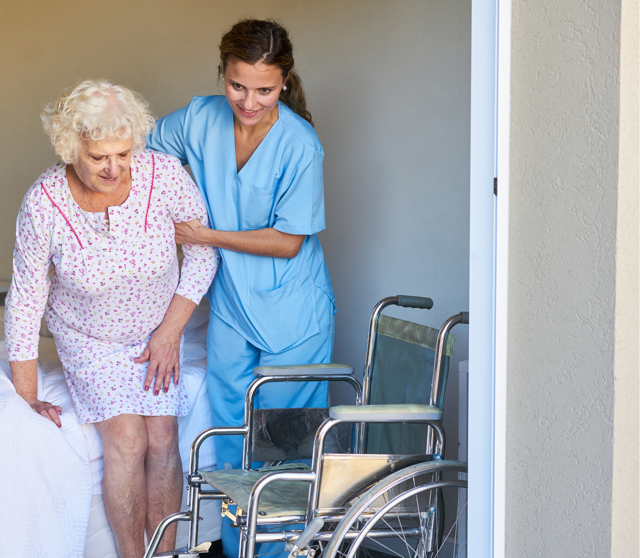our mission
Our mission is to provide compassionate and trustworthy care, ensuring every patient feels comforted, supported, and valued. We are committed to delivering empathetic and reliable services, always putting your health and well-being first.
Your Health Is Our Priority

Services
Many clients today say that they would prefer to stay in their homes, or “age in place,” for as long as possible. Challenges like cognitive decline and decreased mobility can make living at home without assistance difficult and unsafe. Benevolent Nursing Care is ready to assist with these challenges, which can make aging in place much safer for most clients, especially when used in tandem with home modifications and assistive technology this allows them to remain in the comfort of their own homes.
Benevolent Nursing Care, is care provided in the client’s home. It includes custodial care for elderly people and assistance with activities of daily living, provide companionship, socialization, and cognitive stimulation for clients. Family caregivers frequently use home services as a respite when they need to travel, work, or attend to other personal errands. This assistance allows many elderly adults clients to remain at home when they are not ready to relocate to a residential care community. It is also a good option for those who just need some assistance and are otherwise independent, as the amount of care can be personalized for everyone’s needs, from one afternoon per week to 24 hours a day, seven days a week. If you need to get away for a few hours a week or overnight, Benevolent Nursing Care can ease the worry.
Benevolent Nursing Care provides a watchful eye, drive clients to appointments, read aloud, play cards, prepare light meals and snacks, and otherwise function as an extra set of hands, eyes, and feet for your loved one. Care is ideal for someone who would otherwise have to spend part of the day alone and who requires some light assistance. We fill a need for clients who are starting to have difficulties maintaining their home or completing all activities of daily living independently, but who do not yet need the full-time assistance available at an assisted living community.
What Services does Benevolent Nursing Care Provide?

Assistance with activities of daily living

Grocery shopping and meal preparation

Transportation to doctor’s appointments, social activities, and more

Medication management

Assistance with mobility

Housekeeping light services, including laundry

Companionship, social engagement, and cognitive stimulation

Respite for family caregivers Post-surgery recovery care

Financial Assistance for care at home
It always an option to pay out-of-pocket for in-home care. Below are some of the most common used resources available to pay for home care.
Long-Term Care Insurance: Standard health insurance will not pay for personal care assistance, but some long-term care insurance policies may. While long-term care (LTC) insurance policies are specifically designed to cover senior care, the exact coverage details can vary depending on several factors, most notably the age of the beneficiary when they signed up for their policy. LTC insurance oftentimes will not cover in-home care until the client needs help with at least two activities of daily living. Check the details of your loved one’s policy to see if in-home personal care assistance is a covered benefit.
Life Insurance: Though one’s life insurance benefit is intended to be accessed after they pass, in some cases it makes more financial sense to access the funds early and use the life insurance payment to finance long-term care. This may be in the form of an “accelerated death benefit” from the insurance provider, or you may look to selling the policy to a third-party for a cash payment. Look into the specifics of your loved one’s policy to see if this option makes sense for your situation.
Veterans Benefits: In addition to a VA pension, some veterans are eligible for the Aid and Attendance (A&A) benefit, an additional monthly payment intended to be used towards paying for long-term care. One of the eligibility terms is needing help with one or more activities of daily living, so most veterans in need of in-home care will likely qualify. You can learn more about the benefit and apply directly on the Veterans Association website, or apply in person at your local Veterans Association office.
Reasons to look for assistance
One of the biggest indicators that your aging parent needs in-home help is a noticeable decline in hygiene and grooming. This may include infrequent bathing, overgrown facial hair, or a generally unkempt appearance.
When you give your loved one a hug, you may notice that they feel thinner and frailer than before. Or, maybe you have spotted bruises on their body. Significant weight loss can be a sign that your aging parent is struggling to prepare meals for themselves, or that they have trouble getting around the kitchen or possibly remembering how to cook properly. Bruises tend to be evidence of falls or other accidents, although your loved one may be reluctant to admit that this is happening.
Increased Forgetfulness: We all forget things sometimes increasing incidents of forgetfulness over time, especially when it comes to important to-dos like taking medication or paying bills, may indicate that help is needed.
Difficulty keeping up with housework is a common indication that an elderly person needs in-home assistance. Some signs that your loved one is struggling to keep up with the housework may include dust, dirt, or grime in areas that used to be clean, excessive clutter, or piles of dirty dishes.
Benevolent Nursing Care, can help encourage your loved one to have the best possible experience within their status.
Contact us
Reach out to us for your free consultation. We’re here to help.
Our Location
1850 43rd Ave Suite C 4-5
Vero Beach, FL 32960
Email: admin@benevolentnursesvero.com
Phone: 772-538-0444
